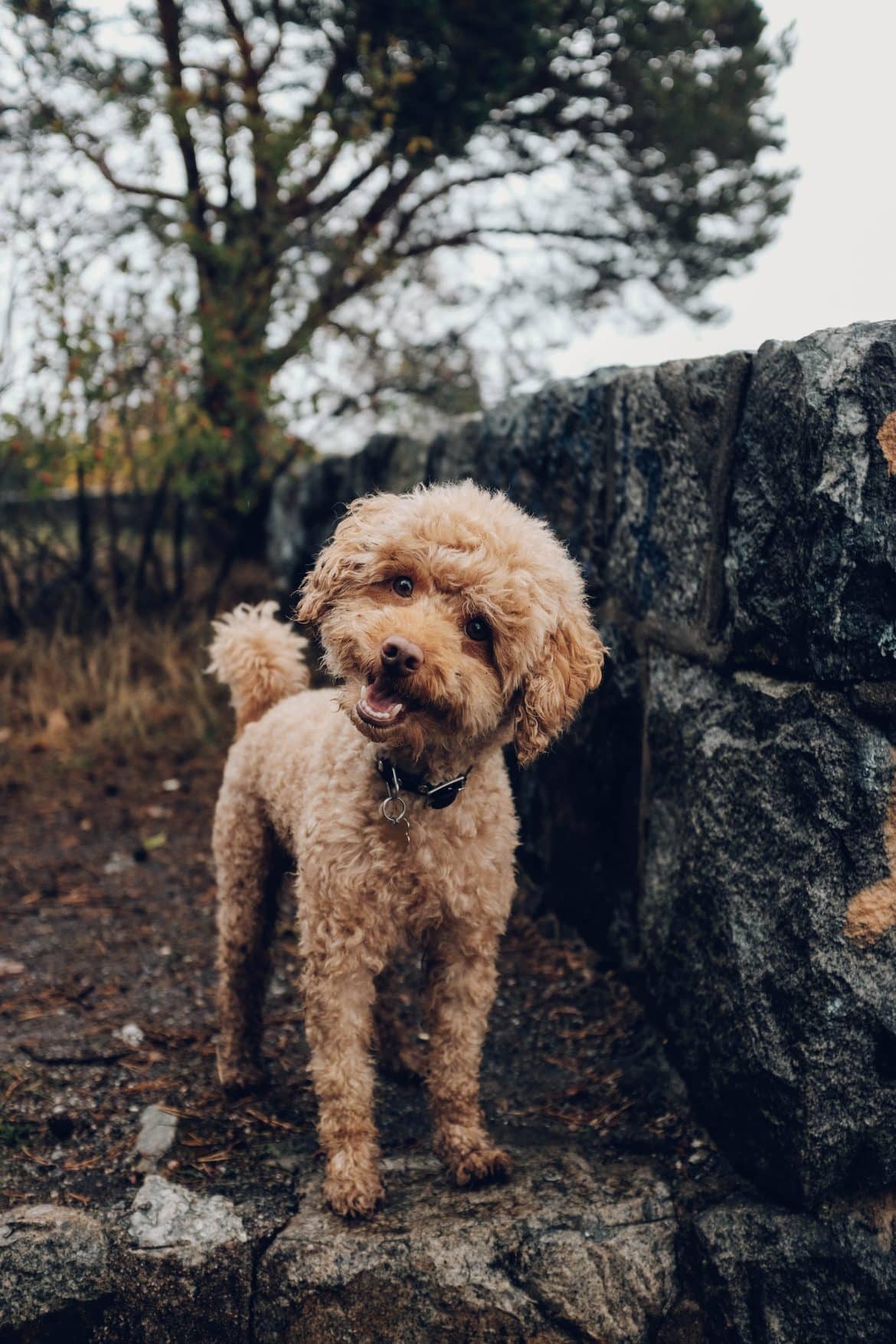Imagine you're a new puppy owner, eagerly welcoming your adorable furball into your home. As you excitedly prepare for this new journey, one important question may cross your mind: how long can a puppy go without water? Ensuring your puppy stays hydrated is crucial for their well-being, but it's natural to wonder how long they can go without a drink. In this article, we'll explore the importance of water for puppies and shed some light on this common concern. So, relax, grab a cup of tea, and let's learn about the importance of keeping your puppy hydrated!
Factors Affecting a Puppy's Water Needs
Size and Breed
The size and breed of a puppy play a significant role in determining their water needs. Larger breeds generally have higher water requirements compared to smaller breeds. This is because larger dogs have a higher metabolic rate and more body mass, which results in increased water loss through respiration and sweating. Additionally, certain breeds, such as those with thick fur or short snouts, are prone to overheating and may need more water to regulate their body temperature.
Age
Age is another crucial factor to consider when determining a puppy's water needs. The water requirements of a puppy vary at different stages of their development. Newborn puppies rely solely on their mother's milk for hydration, as they are unable to consume water independently. As they grow, their water needs increase gradually.
Activity Level
The activity level of a puppy also influences their water intake. Just like humans, puppies that engage in more physical activity require more water to stay properly hydrated. Regular exercise and playtime can lead to increased panting and sweat production, resulting in higher water loss. Therefore, puppies with a more active lifestyle will need more access to water to replenish their fluids.
Environmental Conditions
Environmental conditions can affect a puppy's water requirements. In hot and humid climates, puppies will need to drink more water to prevent dehydration and maintain their body temperature. Similarly, during winter months, when the air is drier, puppies may need to increase their water intake to offset the effects of indoor heating systems that can lead to dehydration.
Water Requirements by Age
Newborn Puppies
During the first few weeks of their lives, newborn puppies rely completely on their mother's milk for hydration. The mother's milk not only provides essential nutrients but also fulfills their water requirements. Therefore, it is essential to ensure that the mother dog has ample access to fresh water to produce enough milk for her puppies.
Transition to Solid Food
As puppies transition from solely relying on their mother's milk to consuming solid food, their water requirements begin to change. It is crucial to provide them with fresh water alongside their meals to promote proper digestion and hydration. This is a significant milestone in a puppy's growth, as it marks their increasing independence and ability to regulate their own water intake.
Weaning Stage
During the weaning stage, when puppies are gradually introduced to solid food, it is important to offer them access to water throughout the day. While they may still rely on their mother's milk or a milk replacer for some of their hydration, providing them with water will allow them to learn and establish healthy drinking habits.
Puppies Older than 8 Weeks
Once puppies reach the age of 8 weeks, they can usually be fully weaned from their mother's milk or milk replacer. At this stage, water becomes their primary source of hydration. It is essential to ensure that fresh water is available at all times to meet their growing water needs.

This image is property of images.unsplash.com.
Dehydration in Puppies
Signs of Dehydration
Dehydration occurs when a puppy does not have enough water in their body to function properly. It is important to recognize the signs of dehydration early on to prevent any potential complications. Common signs include excessive thirst, dry gums, sunken eyes, lethargy, loss of appetite, and reduced skin elasticity. Checking for these signs regularly can help identify dehydration before it becomes severe.
Consequences of Dehydration
Dehydration can have serious consequences for a puppy's health. It can lead to organ failure, kidney problems, electrolyte imbalances, and heatstroke. Additionally, dehydration weakens the immune system and can hinder the overall growth and development of a puppy. Therefore, it is crucial to address dehydration promptly to prevent any long-term complications.
When to Seek Veterinary Assistance
If you suspect your puppy is dehydrated or if they display any symptoms of dehydration, it is essential to seek veterinary assistance immediately. A veterinarian will be able to assess the severity of the dehydration and provide the necessary treatment. They may administer fluids intravenously or recommend specific oral rehydration solutions to restore the puppy's hydration levels.
Puppy Water Intake Guidelines
General Recommendations
As a general guideline, puppies should have access to fresh water at all times. They should be allowed to drink as much as they need to stay properly hydrated. Monitoring their water intake and ensuring that their water bowl is always filled can help prevent dehydration and other related health issues.
Factors That May Increase Water Intake
Certain factors may increase a puppy's water intake. These include hot weather, high levels of physical activity, pregnancy or lactation in female dogs, and certain medical conditions such as diarrhea and vomiting. Understanding that these factors can increase a puppy's water needs will help ensure they have access to an adequate water supply.
Factors That May Decrease Water Intake
On the other hand, there are factors that may decrease a puppy's water intake. These can include cooler weather, a sedentary lifestyle, certain medications, and underlying health issues. It is important to be aware of these factors, as a decreased water intake can lead to dehydration if not addressed.

This image is property of images.unsplash.com.
Managing Water Intake in Puppies
Providing Fresh Water Access
To manage a puppy's water intake effectively, it is crucial to provide them with a constant supply of fresh, clean water. Ensure that their water bowl is easily accessible, especially if they are confined to a specific area. It is important to clean and refill the water bowl regularly to prevent bacterial contamination and ensure the water remains fresh and appealing to the puppy.
Training for Proper Water Intake
Proper training can help teach a puppy to drink water in a controlled and appropriate manner. This can be achieved by guiding the puppy to their water bowl and encouraging them to drink during scheduled times. Consistency is key in training, and positive reinforcement, such as praise or treats, can be used to reinforce desired behavior.
Water Intake Monitoring
Regularly monitoring a puppy's water intake is essential in ensuring they are drinking enough. By keeping track of how much water they consume each day, any significant changes in their water intake can be easily identified. Monitoring can be as simple as marking the water level in the bowl or using measuring cups to measure the amount of water consumed.
Consequences of Water Restriction
Impact on Health and Development
Restricting a puppy's access to water can have detrimental effects on their health and development. Insufficient water intake can lead to dehydration, which, as mentioned earlier, can result in organ failure, electrolyte imbalances, and hindered growth. It is important to prioritize a puppy's hydration to promote their overall well-being.
Causing Urinary Issues
Water restriction can also contribute to the development of urinary issues in puppies. Insufficient water intake can lead to the formation of bladder stones, urinary tract infections, and other related problems. These conditions can cause discomfort and may require veterinary intervention. Providing an ample supply of water can help minimize the risk of urinary issues.
Increasing the Risk of Heatstroke
Water plays a crucial role in regulating a puppy's body temperature. Restricting access to water in hot and humid conditions can significantly increase the risk of heatstroke. Heatstroke is a life-threatening condition characterized by a rapid increase in body temperature, which can lead to organ damage and even death. Proper hydration is essential in preventing heatstroke in puppies.
This image is property of images.unsplash.com.
External Factors to Consider
Traveling with a Puppy
When traveling with a puppy, it is important to consider their water needs. Ensure you have an adequate supply of water and a portable water bowl for them to drink from. Plan regular stops to offer them water and take bathroom breaks. Being prepared and attentive to their water intake during travel will help keep them hydrated and comfortable.
Managing Water during Housebreaking
Housebreaking a puppy involves teaching them proper bathroom habits. It is crucial to offer them water regularly to maintain their hydration, as well as establish a routine for bathroom breaks. Consistency in water access and bathroom breaks will aid in the housebreaking process and promote a healthy relationship with drinking water.
Puppy's Access to Outdoor Water Sources
If a puppy has access to outdoor water sources, such as pools or ponds, it is important to be cautious. While it may seem like a fun way for them to quench their thirst, not all outdoor water sources are safe for consumption. Ensure that any outdoor water source they have access to is clean and free from contaminants that could be harmful to their health.
Tips for Ensuring Proper Hydration
Establishing a Regular Drinking Schedule
Establishing a regular drinking schedule can help ensure that a puppy remains properly hydrated throughout the day. By offering water at consistent intervals, such as after meals or during playtime, you can encourage a puppy to maintain a healthy drinking habit. Consistency is key in establishing routine and promoting proper hydration.
Monitoring Water Intake
Regularly monitoring a puppy's water intake is crucial to ensure they are meeting their hydration needs. Keep track of how much water they consume each day and compare it to their recommended water intake based on their age, size, and activity level. Any significant changes in their water intake should be noted and discussed with a veterinarian if necessary.
Encouraging Hydration with Moist Food
Including moist or wet food in a puppy's diet can help increase their overall water intake. Wet foods have a higher moisture content compared to dry kibble, providing additional hydration. This can be particularly beneficial for puppies who may not have a natural inclination to drink water frequently.
Common Questions about Puppy Water Needs
Can puppies drink milk instead of water?
While puppies may consume milk from their mother during their early stages, it is important to gradually transition them to water once they are weaned. Puppies have different nutritional needs compared to newborns, and providing them with fresh water is essential for their hydration and overall health.
Can puppies drink from the same bowl as adult dogs?
In most cases, it is not recommended for puppies and adult dogs to share the same water bowl. Puppies have different hygiene requirements, and sharing a bowl could increase the risk of spreading diseases or parasites. It is best to provide separate bowls for puppies and adult dogs to promote cleanliness and prevent potential health issues.
How often should I refill my puppy's water bowl?
It is recommended to check and refill your puppy's water bowl multiple times throughout the day. This ensures a constant supply of fresh water and allows you to monitor their water intake. Refilling the bowl whenever it is empty or the water appears dirty will help maintain proper hydration and hygiene.
Can puppies get water from their food?
While puppies can obtain some moisture from their food, it is not sufficient to meet their complete hydration needs. Water is still necessary to ensure proper hydration and overall well-being. Providing fresh water alongside their food is essential in keeping puppies properly hydrated.
What if my puppy doesn't seem interested in drinking water?
If your puppy does not seem interested in drinking water, it is important to monitor their behavior closely. Offer different water bowls or try changing the location of their water bowl to see if it makes a difference. If the issue persists, it is advisable to consult a veterinarian to rule out any underlying health concerns.
Conclusion
Ensuring a puppy's proper hydration is crucial for their overall health and well-being. Factors such as size, breed, age, activity level, and environmental conditions all play a role in determining a puppy's water needs. By understanding these factors, monitoring water intake, and providing consistent access to fresh water, you can help ensure that your puppy remains properly hydrated. Promptly addressing any signs of dehydration and seeking veterinary assistance when necessary will help prevent potential complications and promote a healthy and active lifestyle for your furry friend.



